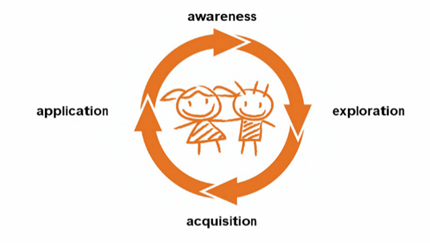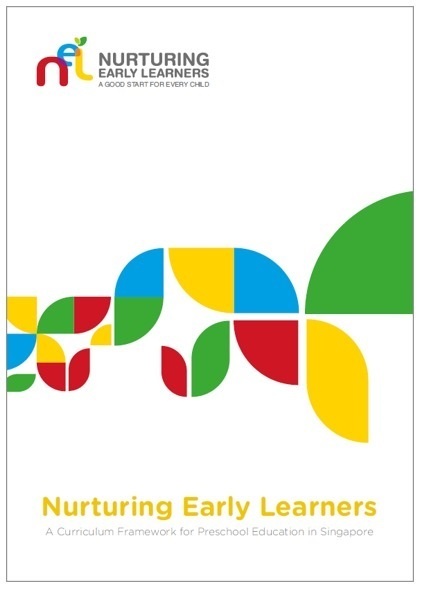Children as constructors of knowledge
What does it mean?
As constructors of knowledge, children:
- Build on their prior experiences to gain new understanding of themselves and the world.
- Construct knowledge through their daily experiences, observing, exploring, reflecting, interacting, making decisions and communicating with peers and teachers about what they are experiencing.
- Find out about things on their own and give meaning to the people, places and objects around them.
- Make connections and acquire a new level of understanding in their learning through thinking, asking questions and reasoning.

Adapted from: Kostelnik, M.J., Soderman, A.K., Whiren, A.P., & Rupiper, M.L. (2019).
Developmentally appropriate curriculum: Best practices in early childhood education (7th ed.). Boston, Massachusetts: Pearson Education
| Find out more |
|---|

|
How can you do it?
Plan meaningful experiences that tap on children’s readiness at each stage of the learning cycle:
- Stimulate children’s interest by intentionally creating the environment and experiences for children.
- Provide opportunities for children to ask questions, investigate the new idea or experience with their senses and make new discoveries.
- Help children make connections between the new information gained and existing knowledge to develop their understanding of the concepts and skills learnt.
- Provide opportunities for children to apply their knowledge and skills in new situations.
| Find out more |
|---|

|
Example
This video illustrates two of the iTeach principles, Teachers as Facilitators of Learning and Children as Constructors of Knowledge, in action in the classroom. The teacher explains the importance of facilitating children’s learning by breaking down an activity into bite-size tasks, modelling the process of carrying out the task, giving clear instructions and asking open-ended questions. This also provides opportunities for children to explore, discover and gain new understanding of themselves and the world.
| Find out more |
|---|

|